If You're Thinking of Quitting Your Blog, You're Not Alone

Blogging is hard.
I don't want to beat around the bush here. Blogging is a challenging, time-consuming, often tedious use of time and money. It's a very long-term strategy that won't show worthwhile returns for months or years after you start, and that's if you're doing everything right.
And that's where the devil is in the details. Because what is "doing everything right"? There are thousands of guides written about every possible different aspect of blogging and how to do it properly. I'm responsible for several of them myself. It's a mess because you need to know all manner of details about everything from topic selection to SEO to marketing to image editing to have a chance in all but the least competitive niches.
Decades ago, you could start a blog and become a success simply by being one of the few people with the resources and the money to run a blog. These days, the barrier to entry is so high that, to even show up on anyone's radar, you need to make blogging nearly a full-time job.
It's no surprise that you may be thinking about quitting. But, unfortunately, you're far from alone. Some people even say that as many as 80% of blogs will fail.
I thought that today, I would take this disappointing statistic and dig into it a bit. Why do so many blogs fail? There are a few core reasons, and I want to examine them in greater detail.
 30 Second Summary
30 Second Summary
You'll need at least 1-2 years of consistent work to see real growth in your blog. If you want success, you have to invest significant time in keyword research, write high-quality posts over 2,000 words and create custom images. You can't just post short, superficial content and expect results. You have to pick topics carefully based on competition and search volume, not just personal interest. If you can't commit the time and effort, you can either hire experts to do it for you or think about if blogging fits your business model at all.
Reason #1: It Takes Too Long
Blogging is a very long-term strategy. Virtually none of the blogs that you see in the top rankings today were created within the last year. These webmasters started very few of them within the past five years. Ahrefs was built in 2011. Backlinko was launched in 2012. Hell, Forbes was founded in 1917 as a print magazine, and its website opened up in 1996.
The point is, it takes a long time to grow a blog to the point where it has an audience, where it has name recognition, where it has traffic, social followings, reputations, any of that. Anyone who has started a blog before knows that it starts small, and it can take a long time before the blog becomes enough of a success to begin breaking even, let alone recouping its investment.

Not to sound like a downer here, but unfortunately, it takes a lot of time, effort, and investment to make a blog that grows.
So, how long have you been working on your blog? And I mean seriously working, not just throwing a token article up once a month. Many blogs live in a holding pattern where the creators know they need to keep at it but don't apply the effort or resources necessary to succeed.
I find that the doldrums hit around the end of the first year. Unfortunately, that's also the benchmark many people use to re-evaluate and decide if the blog is worth the continuing investment. The truth is, that's when you'll often start to see the beginnings of an upward climb, but it's still far below the point where it's a viable return on investment - unless you've seriously invested in growth in the first place.
You've probably read all manner of stories about how so-and-so grew a brand-new blog into making thousands of dollars a month in just six months!
You've probably also read news articles about how some random millennial bought their first house with only a single salary. Every time you read one of those stories, you'll see something like "Their parents co-signed the loan" or "their dad paid off their student loans" or another similar advantage most people don't have.
Blogging stories like that are the same way. Sure, Neil Patel can start a new blog and grow it into making thousands a month in just a few weeks. But, he can do it because he's Neil Patel; Neil can throw the weight of all the tools he owns or pays for, a massive budget for paid ads, hundreds of thousands of email subscribers, and acquire a fair bit of extra traffic from name recognition alone. Those are all advantages most people, even business owners, don't have.
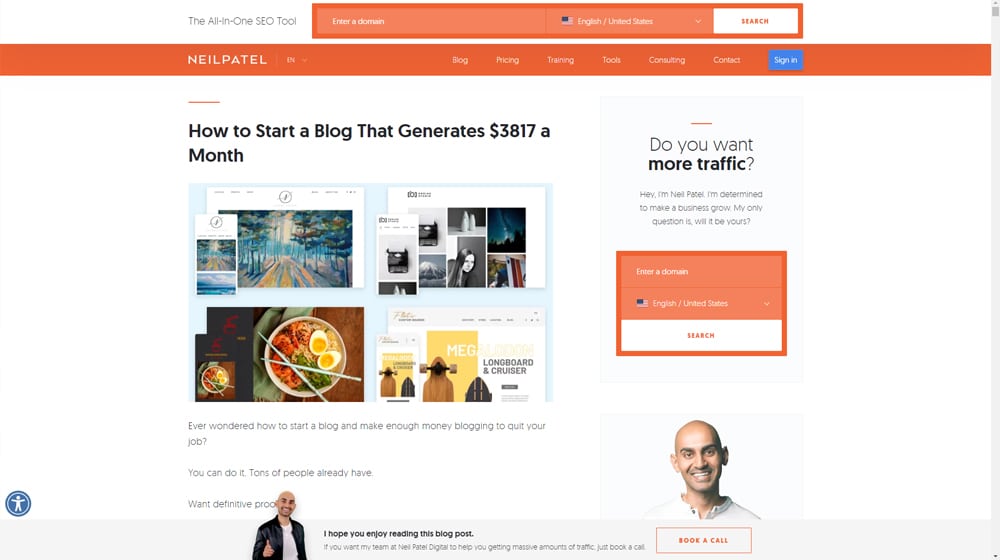
I go over all of this to say: I fully empathize with blogging taking a long time. Even if you pay a company like mine to do it for you, it takes a while for a blog to see returns, and I have many advantages that many novice bloggers don't.
The long-term stable results from content marketing aren't as exciting as ads - you don't get instant gratification. Instead of renting clicks, you're parking money into an asset that gives you a long and stable trickle of organic visitors. To emphasize, this still takes time.
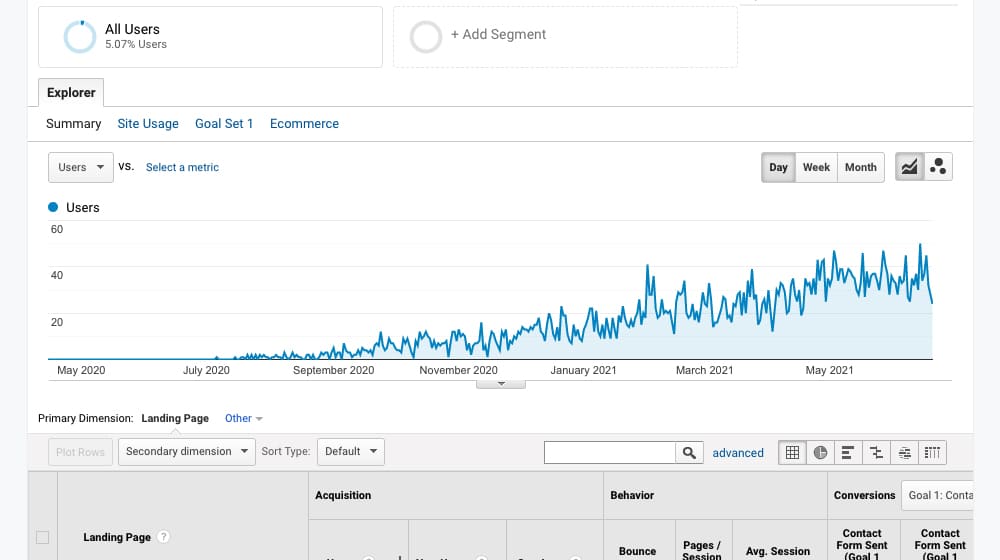
These are more powerful with numbers, and they are more powerful when you focus on quality and intelligent topic selection. That brings us to another common reason that bloggers quit:
Reason #2: No Care in Picking Topics
A lot of people who start blogs have a kind of scattershot approach to it. They read inspirational blog posts about how you need to "write about your passion" and "choose your topics based on what you enjoy, or it will ring hollow."
That's true, but it's true for an overarching perspective. I write about blogging because I'm fascinated by the industry, I'm passionate about it, and I enjoy it. I like writing, I like educating people, and I like conveying my expertise to help other people.
I necessarily don't have a "passion" for keyword research or for reading analytics reports. No one does, not really. We do it because it facilitates success in other ways. A chef passionate about cooking still does the dishes because that's part of the job, even if they aren't passionate about the cleanup.
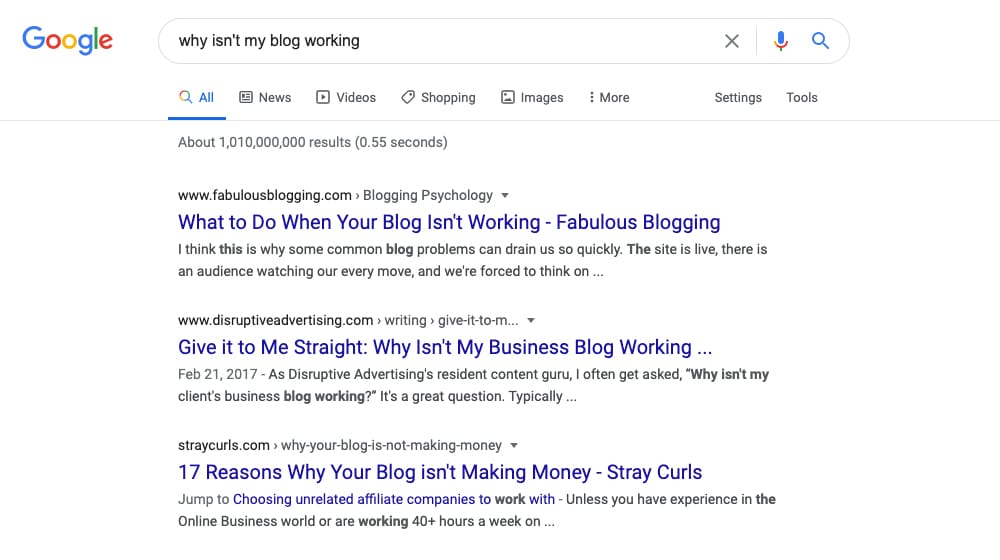
If you don't put care into choosing the topics you write about, you'll run into all manner of issues.
- You don't focus on buyer intent. If you're striving to profit from your blog, you need to reach people in the buyer intent stage, which requires careful analysis and targeting.
- You don't cover topics that get traffic. You could write the best guide in the world about painting the grass on a lawn purple. How many people are going to be searching for that on search engines, though? Not many.
- You cover topics with too much competition. I could write an excellent guide on SEO basics, but why would I, when there are 50+ other companies with much more authority than I have who already have comprehensive guides out there? Too much competition, even if the traffic is immense, means that you are picking a fight that you're unlikely to win.
- You cannibalize your keywords. People who write about their passions tend to focus on the same topics and the same aspects. When Google finds five different posts about the same thing on your site, and those articles are each unique enough not to be considered duplicates, they have to figure out how they should rank. Usually, the answer is "worse than if you had one post with all of the value of those five combined." You'd be surprised at how many blogs I see that have several or even a dozen blog articles that are all discussing the same topic. It's wise to avoid this.
The trouble, as well, isn't just that this happens. It's that you don't know it happens. You may not know some of these are even problems, just that what you're currently doing doesn't work.
The solution to this, unfortunately, is work. To be successful with blogging, you need to focus on keyword research, topic ideas, and content planning. Pick topics like you would pick your stocks that you're eyeing as an investment. Because, at the core of it, that's what blogging is; an investment.
If you pick poor topics without any research, you shouldn't be surprised when they fall flat. You'll also be less confident in the entire process, which is just going to lead you down the road: "Should I quit? Is this even working?"
Topic research is a lot of work, but it's necessary.
Reason #3: Quality Levels are Sub-Par
You would not believe the number of people I talk to who say that a 500-word blog post is good enough. Or maybe you would, or perhaps you're one of those people. I don't know! The truth is, far too many people have an impression of blogging that hasn't changed much since 2011.
We create blog content that converts - not just for ourselves, but for our clients, too.
We pick blog topics like hedge funds pick stocks. Then, we create articles that are 10x better to earn the top spot.
Content marketing has two ingredients - content and marketing. We've earned our black belts in both.
Why 2011? 2011 is when Google rolled out their Panda update. It was the first time they shifted from caring primarily about mechanical signals (like the keyword density of a post, the number of backlinks it had, and so on) to more semantic signals (like the overall quality of the article, the uniqueness of the post, and the length of the post.) Panda changed the face of blogging forever, and it has only grown more focused on quality and user value over technical signals in the decade since.
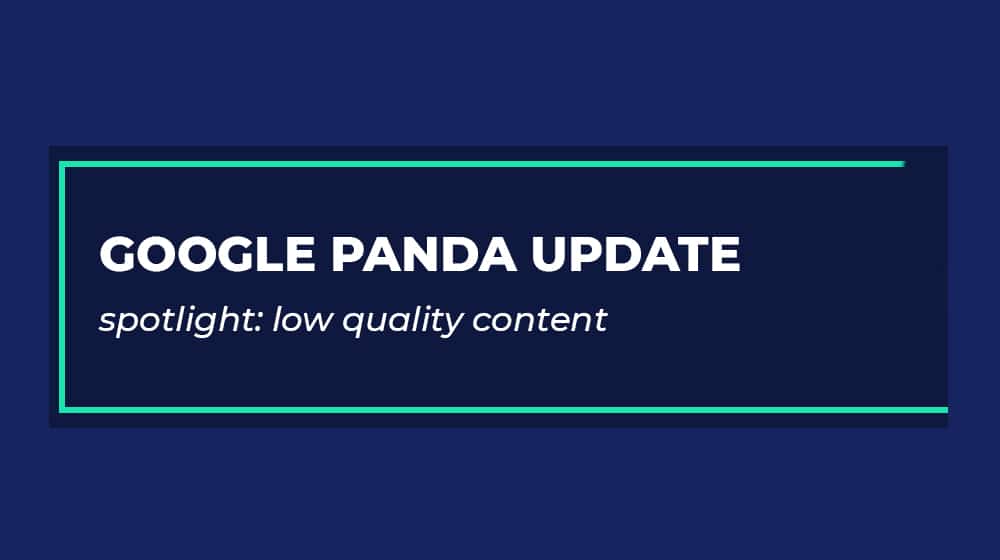
Geeze, has it already been a decade since Panda? Wow.
If you're not putting enough effort into your content, quality levels can suffer. It can happen if you're not paying attention or if you don't know any better. Here are a few common examples of mistakes that I've seen bloggers make:
- Short posts. The average blog post is around 1,250 words long, and even that is trending upwards. A few more years, and we'll see the average hitting 2,000. Already, the best blog posts out there are over 4,000 words. Five hundred words are barely enough for an introduction these days.
- You are plugging your product constantly. I've written other blog posts on this topic, which you can read for more in-depth insights. Suffice it to say that continually promoting your product is something search engines aren't a big fan of, and many users find it untrustworthy. It's hard to provide unbiased and high-quality content when every other paragraph is a plug for your products.
- It's all superficial. I know there's a lot of low-hanging fruit to write about in any topic, but the less depth there is to content, the less valuable it is to users and, consequently, to search engines.
I've seen a lot of bloggers who look at my first two points and say, "I've been doing that!" They put effort into their blogs, and they spend time doing topic and keyword research, though they don't necessarily know the many nuances of those techniques. Then, they take that data, and they write 500-word blog posts about it and call it good.
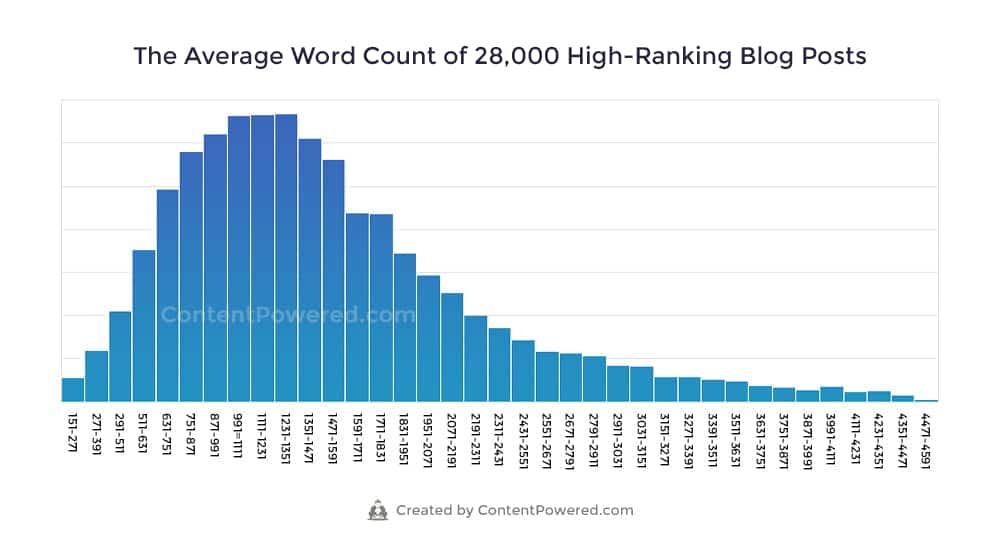
It doesn't work. It barely worked in the bad old days pre-Panda, and it certainly doesn't work today. The truth is, it takes a lot of effort to create a quality blog post. Between the research, the writing, the linking, the images, the metadata, the formatting, and the optimization, it adds up, and even professionals take time to do it.
Reason #4: Not Investing Enough Into It
There are a ton of different checklists out there on what a good blog post needs to succeed. They'll list things like:
- At least 2,000 words.
- At least four images.
- Formatting.
So, you do that. You write a post that's 2,000 words long, add some images, and slap on some formatting. So why isn't it working?
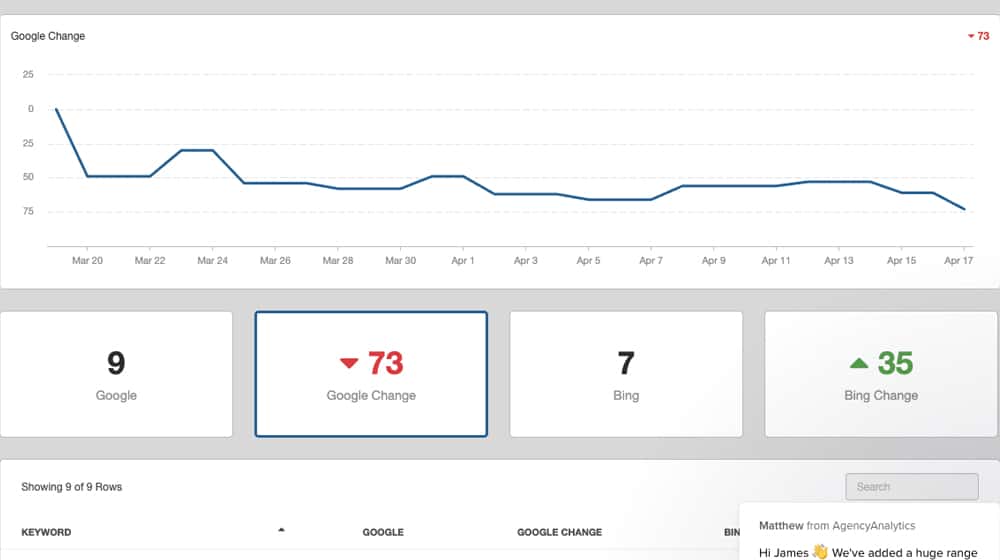
The trouble here is that each one of these "requirements" has nuance as well.
- Two thousand words is a good level to reach, but those words need to be valuable. A 1,500-word blog post with deep value will out-perform a 5,000-word blog post full of fluff any day. Fluff is the enemy. If your competition already ranks with a 3,000-word blog post, you shouldn't be doing the average. You can't compete by doing what's considered "average."
- Images are important, but far too many bloggers paste in some stock photos that they find and call it good. You might notice that all of the best blogs have custom-made images. Yes, it takes time, effort, and money to pull it off, but it's infinitely better when you do. It would also be wise to focus on image optimization; fast-loading images that are lazy-loaded, formatted in the proper dimensions, and have alt tags filled out will perform better than unoptimized images.
- Formatting. Sure, people toss in some H2 tags and the occasional bolded keyword, but that's not really what we mean here when we say "formatting." Formatting is for drawing attention to elements of value. It's for facilitating users who want to skim and still get some valuable information out of your article. It would help if you were comprehensive with your formatting.
All of this is work. Yes, it's tedious, and it doesn't show obvious or immediate results. It is, however, what makes the difference between a blog that never goes anywhere and a blog that reaches the upper echelons of performance.
If you can't invest that much time or effort into your posts, well, you have two choices. You can pay someone else who can, or you can quit. It's no wonder that many budget-constrained small businesses and bloggers opt to backburner their blogs.
Reason #5: Following Bad Info or Guides
There are many guides, checklists, and tutorials available on starting and growing a successful blog. Most of them aren't very good and contain partial or outdated information.
They're not poor quality! Quite the opposite. They're well-written and full of great advice. So why are they harmful?
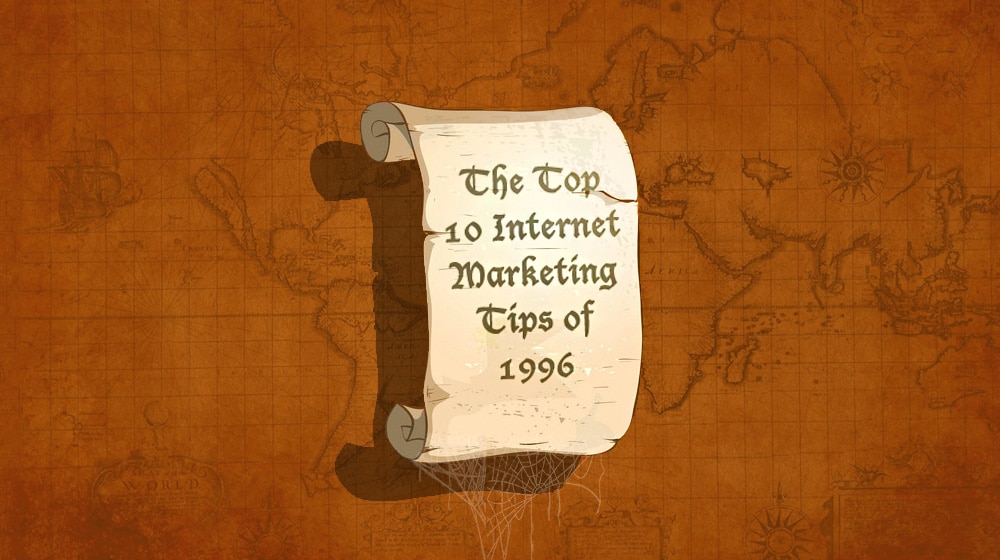
You should probably be cautious of these because:
- They're old. Blogging and SEO change a lot from year to year, so if the article isn't up to date, following its advice will put you behind the curve at best or use outdated strategies at worst.
- They give bad advice. Some of these blogs use gray or black hat strategies that are, unfortunately, no good for long-term blogging. They might work to skyrocket a small affiliate site into visibility for a few months, but they collapse before too long.
- They're far too technical. The Pareto Principle comes into play here. A guide that gets too into the weeds with details will have starkly diminishing returns, but a novice blogger doesn't know which of these details are valuable and which aren't.
The biggest problem is, you have no way of knowing which is which. Is the guide you're following adequate, or is it focusing too much on details that won't be relevant to your site, or is it using a strategy that will get you penalized by Google? How can you answer that question if you're not already an expert on par with whoever wrote the guide?
This confusion in the content marketing and SEO industry is why I strongly recommend that you hire an expert. The DIY option is there, and it's always there, but if you're prone to quitting because you don't know enough about a subject to succeed in it, you're unlikely to take the time to become enough of an expert to get the DIY option to work.
Reason #6: Bad Fit for Your Industry
Some industries benefit from blogging more than others:
- If you're a growing internet business with customers worldwide and selling subscriptions, blogging is going to be one of the best strategies for you.
- If you're a local business that just launched and you don't have much advertising capital, blogging doesn't make much sense.
Ask yourself: can I benefit from new visitors worldwide who land on my site and read my helpful articles? If the reader wants to purchase a service or solution from me, can I sell it to them, or if they are in another state or country, is that a barrier?
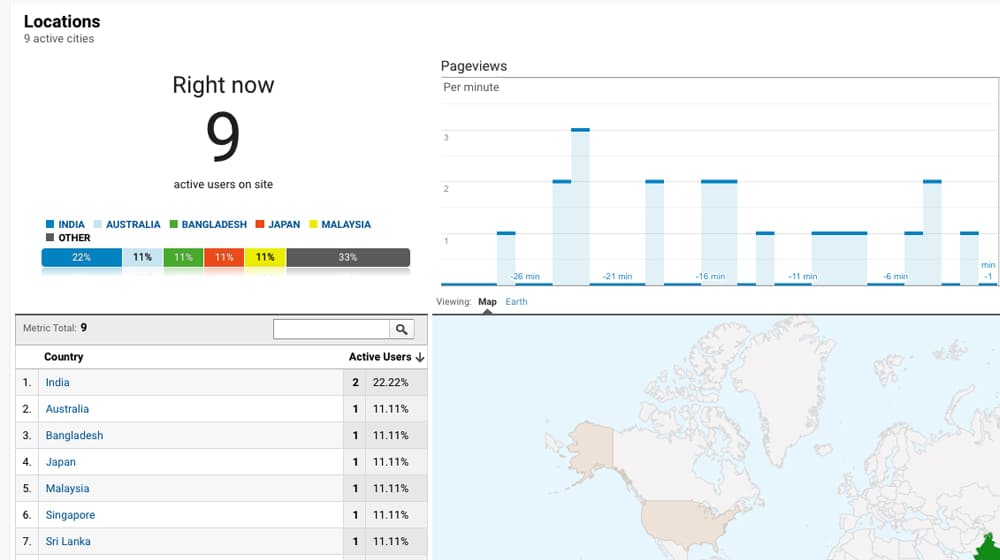
The price of the products or services you're selling is another factor. If you're selling candy, blogging might be a challenging strategy to succeed with - it would be discouraging to invest thousands into a blog to receive an average sale of $6. However, if you're selling a high ticket product or service, or if you have a free trial that converts to customers with a high lifetime value, that extra traffic can be very profitable.
Should You Quit Your Blog?
Yes and no.
Are you willing to spend time investing in your blog? What about researching and studying the details that matter? Can you or a member of your team put in the effort every day to make your blog a real success? Then no, you shouldn't quit your blog. Get to work, stick with it, and you'll get there, eventually. Blogging is about sustained effort over time and a little bit of luck.
Are you unwilling to do all of that? Then you have two options. If you have the budget for it and still want your blog to be a success, pay someone like me to do it for you. We exist and are more than willing to do the work so you can get on with other things. More importantly, we're better at hitting bullseyes and can significantly improve your chances of success.
If you aren't willing or able to put in either the time and effort or the money? Go ahead and pause your blogging efforts. I won't hold it against you. The truth is, many people stopped their blogs. Some come back and start other projects and grow successful there. Others move on to other things. A blog is an excellent tool for business success, but it's far from the only marketing device, and it's far from the only way you can live a fulfilling and happy life. If your blog is more hassle than it's worth, move on to something else.



 30 Second Summary
30 Second Summary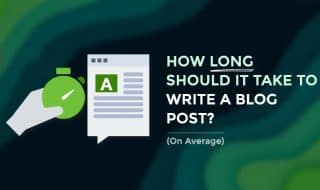


January 14, 2022
Hi James. I actually stopped blogging due to the lack of will to continue a few years back. It was taking too long to take off and it took a toll on me. However, I went back to it earlier last year and somehow found the inspiration to pick up where I left off. I'm still far from 'success' but it's doing way better than before due to my consistent effort and dedication. This post just motivated me again to keep going. Thank you.
January 19, 2022
Hey Brandon, awesome to hear it! Keep at it!
January 20, 2022
Insightful read. Blogging really requires patience and grit. You can't expect immediate results without putting in the work.
January 21, 2022
Thanks Sebastian! Completely agree.
June 24, 2023
Very useful and encouraging post. I started my blog three years back. I have 80% of organic traffic. But I am not tech-savvy. Though of late, my traffic has started increasing. But though I am still very passionate about my blog topics, I get discouraged by the result. Till now my earning is zero.
Please advise me on what should I do. Quit or continue? Shall I start another blog after closing the one I have now?
June 24, 2023
Hi Malati!
A blog needs two things to succeed; monetization and traffic.
With monetization, the most challenging are things like ads and affiliate marketing. It requires a massive amount of traffic, and the earnings are usually underwhelming. The best possible monetization is a business or a product, as your returns will be much higher.
As far as traffic goes, usually this boils down to three things; topic selection, content quality compared to existing articles, and the quality of your website. These three things should be a never-ending work in progress, and you'll see improvements if you work on them. Most of the time, if a blog doesn't get any traffic and you wrote a really great article, either the topic is a poor choice or something is wrong with your user experience.
What are you using to find blog topics? I recommend giving Topicfinder.com a try! That's our in-house tool. But other software like Ahrefs and Semrush work equally well, they are just a bit more expensive: https://www.contentpowered.com/blog/semrush-ahrefs-moz-guide/
Drop me a line, I'm happy to take a look at what you have and give you some pointers!
September 12, 2024
Wow, your post really hits home about how hard blogging can be. How long have you been working on your blog?
September 12, 2024
Hey Earl,
Thanks for sharing your thoughts! You're absolutely right, blogging can definitely be a grind. I've been at it for close to 5 years now, and it sometimes feels really tough.
You could find it helpful to set a manageable posting schedule. Besides, connecting with other bloggers for support is pretty cool, do you know what I mean?
Glad the post resonated with you!
Cheers!